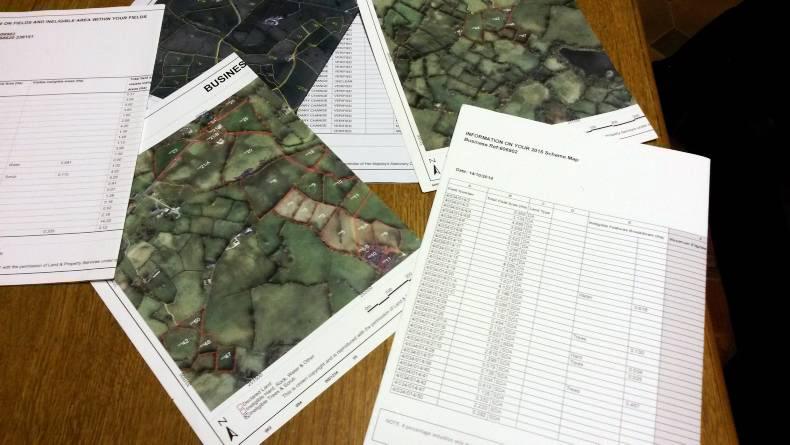Around 3,500 farm businesses in Northern Ireland have been identified as possibly having duplicate fields on their 2015 Single Application Form (SAF), with a significant number facing financial penalties later this year.
The person who includes a field in error could be hit with an over-declaration penalty. There are no penalties where the over-declared land area is less than 2ha or an additional 3%. But above this threshold, the land area deducted from the 2015 claim will be the over-declared area times two.
However, if the over-declared area represents more than 20% of the claim, no payments will be made this year. If it is over 50%, then an applicant will receive no payments in 2015 and could face reductions in payments over the following three years.
Highlighting the penal nature of the penalties, members of the NI Agricultural Consultants Association (NIACA) in front of the Stormont agriculture committee this week called for local MEPs to raise the issue directly with auditors in Brussels.
The point they make is that it is impossible to defraud the DARD system by making a duplicate claim, and, when it happens, it is nothing other than a genuine error. As a result, the penalties do not fit the crime. “Nobody intentionally duplicates a field given that DARD’s IT system quickly identifies fields on two or three forms. Everyone knows the consequences of duplicate fields,” NIACA chair David Rankin told MLAs.
Doubled
The number of duplicate fields has more than doubled this year, which NIACA believes is due to a number of factors, including that fields were listed in numerical order on the 2015 SAF (and not owned land, followed by conacre land as in 2014) and the time pressure on everyone to get forms completed this year.
However, DARD officials also met the agriculture committee on Tuesday and insist that they had no discretion in how they apply penalties. “The regulation is very prescriptive in this area. If we didn’t apply the law as we are required to, we would face disallowance,” said Pauline Rooney from DARD.
She also pointed out that there are two types of duplicate claims identified this year. The first, which applies to around 60% of cases, is where a landowner wrongly declared all the land they owned on the form (sometimes at the guidance of DARD staff), but did not claim certain fields.
These fields were subsequently claimed by the person actually farming the land.
“This first group is relatively straightforward to sort,” said Rooney. It requires both parties to confirm who is actually farming the land. There are no penalties.
The second group is where both parties claimed the same field. DARD will then try to establish who is actually farming the land and claimed correctly. The other party faces possible penalties.
According to DARD officials, the numbers of fields and farm businesses in this second category are comparable to previous years.






 This is a subscriber-only article
This is a subscriber-only article










SHARING OPTIONS: